I have a view controller that's presented in a popover using a storyboard segue.
In the presenting view controller, I had the following code:
override func prepareForSegue(segue: UIStoryboardSegue, sender: AnyObject?) {
if let svc = segue.destinationViewController as? SettingsViewController {
svc.popoverPresentationController?.delegate = self
}
}
However, it turns out that the presented view controller, even though it appears as a popover, has a modalPresentationStyle of '.Modal, and hence a nil popoverPresentationController. Weird!
So, I updated the code as follows:
override func prepareForSegue(segue: UIStoryboardSegue, sender: AnyObject?) {
if let svc = segue.destinationViewController as? SettingsViewController {
svc.modalPresentationStyle = .Popover
svc.popoverPresentationController?.delegate = self
}
}
The svc.popoverPresentationController delegate is now set OK, but if the popover is dismissed by the user tapping outside, none of the UIPopoverPresentationControllerDelegate delegate methods (e.g. popoverPresentationControllerShouldDismissPopover are called. What am I missing?
